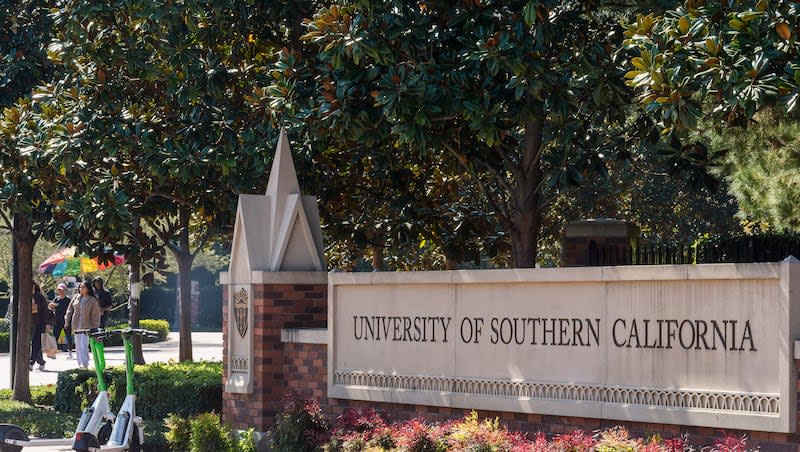USC canceled its valedictorian’s remarks. Does the decision promote public safety — or hurt free speech?

The University of Southern California will no longer allow its valedictorian to give a speech at graduation this spring due to security concerns related to the Israel-Hamas war.
Andrew T. Guzman, provost and senior vice president for academic affairs at USC, explained the decision in a statement released Monday, arguing that the school must take the threat of violence seriously.
“The intensity of feelings, fueled by both social media and the ongoing conflict in the Middle East, has grown to include many voices outside of USC and has escalated to the point of creating substantial risks relating to security and disruption at commencement. We cannot ignore the fact that similar risks have led to harassment and even violence at other campuses,” Guzman said.
He continued, “We must prioritize the safety of our community.”
USC valedictorian controversy
The valedictorian, Asna Tabassum, had been scheduled to “give a speech alongside two salutatorians,” according to USA Today. But her social media activity related to Israel and Palestine prompted pushback from students, USC graduates and others.
Her social media “includes an Instagram bio that links to a pro-Palestine website,” USA Today reported.
Tabassum, who is Muslim, responded to the cancellation in a statement put together by the Greater Los Angeles Area office of the Council on American-Islamic Relations.
“I am both shocked by this decision and profoundly disappointed that the university is succumbing to a campaign of hate meant to silence my voice,” she said, according to The Associated Press. “I am not surprised by those who attempt to propagate hatred. I am surprised that my own university — my home for four years — has abandoned me.”
Zach Greenberg, a First Amendment attorney with the national Foundation for Individual Rights and Expression, criticized USC’s decision in an interview with The Associated Press, arguing that schools must be careful to avoid the appearance of censorship.
The decision “seems to be a pretty clear example of a university canceling an event and censoring a student because of opposition to student views, especially on social media regarding the Gaza conflict,” he said, noting that if there are specific security threats driving the decision, the school should share more details.
In his statement, Guzman argued that “there’s no free-speech entitlement to speak at a commencement.”
“The issue here is how best to maintain campus security and safety, period,” Guzman said in his statement.
Conflict over Israel and Palestine
USC’s announcement about its valedictorian comes as schools across the country grapple with unrest over Israel, Palestine and the Israel-Hamas war.
School leaders have struggled to create space for dialogue while facing accusations of antisemitism and Islamophobia.
In many cases, events related to the Israel-Hamas war have sparked protests on college campuses, and there have been similar protests in communities around the U.S.
“The university announced its decision the same day pro-Palestinian demonstrators blocked roadways in Illinois, California, New York and the Pacific Northwest, temporarily shutting down travel into some of the nation’s most heavily used airports, onto the Golden Gate and Brooklyn bridges and on a busy West Coast highway to demand an immediate cease-fire,” The Associated Press reported.
In his statement, Guzman said that the current moment is both exciting and painful for USC students.
“As I walk around our campuses, there’s a palpable sense of excitement as soon-to-be-grads happily pose for pictures with friends in all their favorite sites. At the same time, we all recognize the strife, turbulence, and pain being experienced within our own community, and on so many other campuses and places around the world,” he said.
USC’s commencement ceremony is set to take place on May 10. Around 65,000 people are expected to attend.

